TRB Complaints & Fitness to Practice Procedure
The Trauma Regulation Board (TRB) exists to protect the public and uphold enforceable trauma standards across services. Our complaints process is trauma-sensitive, transparent, and designed not only to investigate unsafe practice, but also to support practitioners to meet the standards required for safe trauma care.
1.) What You Can Complain About
Unsafe or harmful practice by a practitioner on the TRB Register
Practitioners not currently registered with TRB but claiming to be trauma-informed or providing trauma care without appropriate competence
Organisations or services with a culture of retraumatisation or unsafe policies
Breaches of the TRB Code of Practice (ethics, safeguarding, competence, conduct)
2.) Who Can Make a Complaint?
Anyone can raise a concern, including;
Service users or family members who have experienced harm or retraumatisation
Professionals or colleagues who have witnessed unsafe practice
Commissioners, employers, or safeguarding leads
3.) How to Submit a Complaint

Complaints must be submitted through our secure online form (preferred) or by email/letter.
You will need to provide:
Your name and contact details (we do not accept anonymous complaints)
The name of the practitioner or organisation (if known)
A description of the concern and approximate dates
Any supporting documents or evidence (if available)
Adjustments are available for disabled, neurodivergent, or trauma-affected individuals.
4.) Initial Screening
(Within 5 working days)
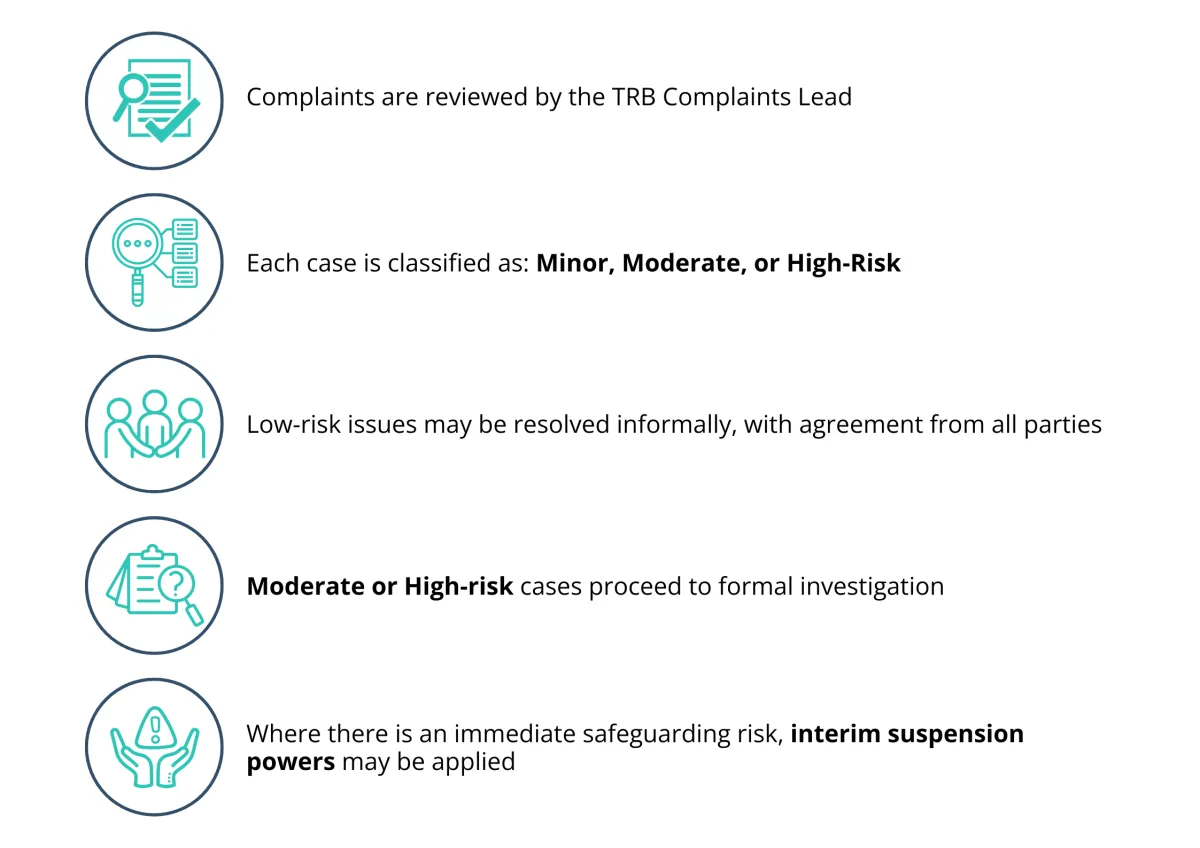
5.) Investigation Process
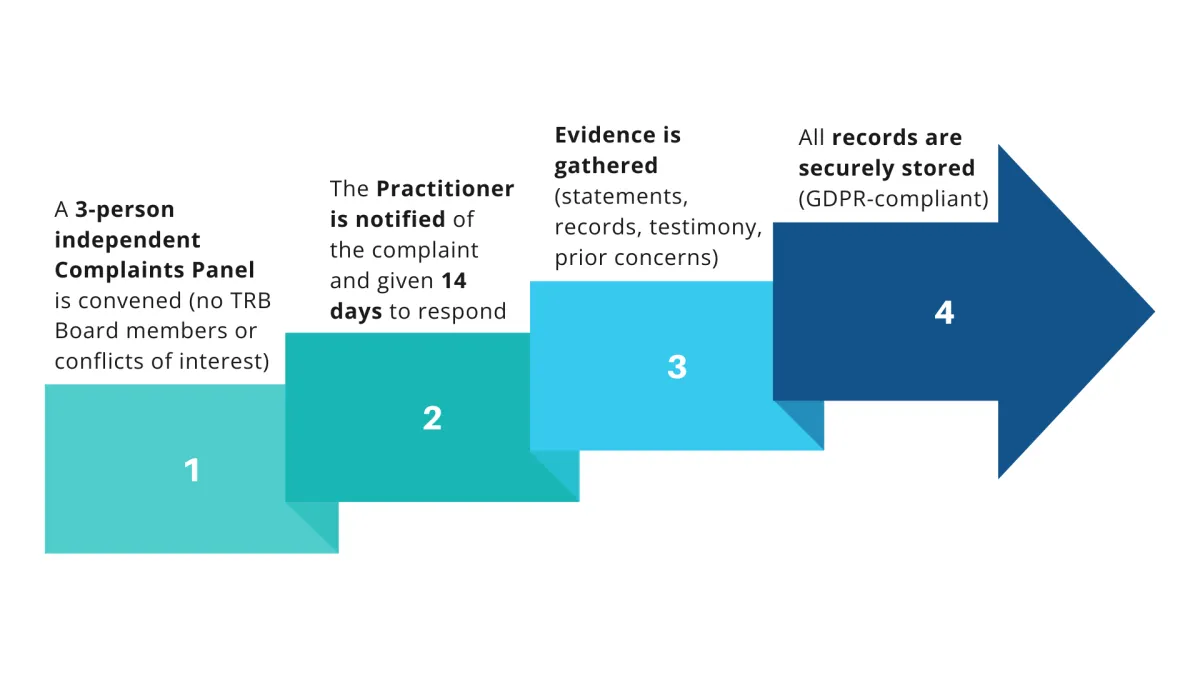
6.) Outcomes & Sanctions
If the practitioner is on the TRB Register
The Panel may decide to:
Dismiss the complaint (with rationale)
Issue guidance or a reflection requirement
Impose conditions on practice (e.g. supervision, CPD)
Suspend registration (time-limited)
Remove from the TRB Register
If the practitioner is not on the TRB Register
The Panel may:
Require the practitioner to undertake trauma-specific training and apply for TRB registration
Issue a public notice of non-cooperation if they refuse to engage
Refer the matter to statutory bodies (e.g. DBS, police, safeguarding boards) where risks are identified
7.) Appeals
Practitioners may appeal within 28 calendar days on grounds of;
New evidence
Procedural unfairness
Disproportionate sanction

8.) Safeguards for Complaints
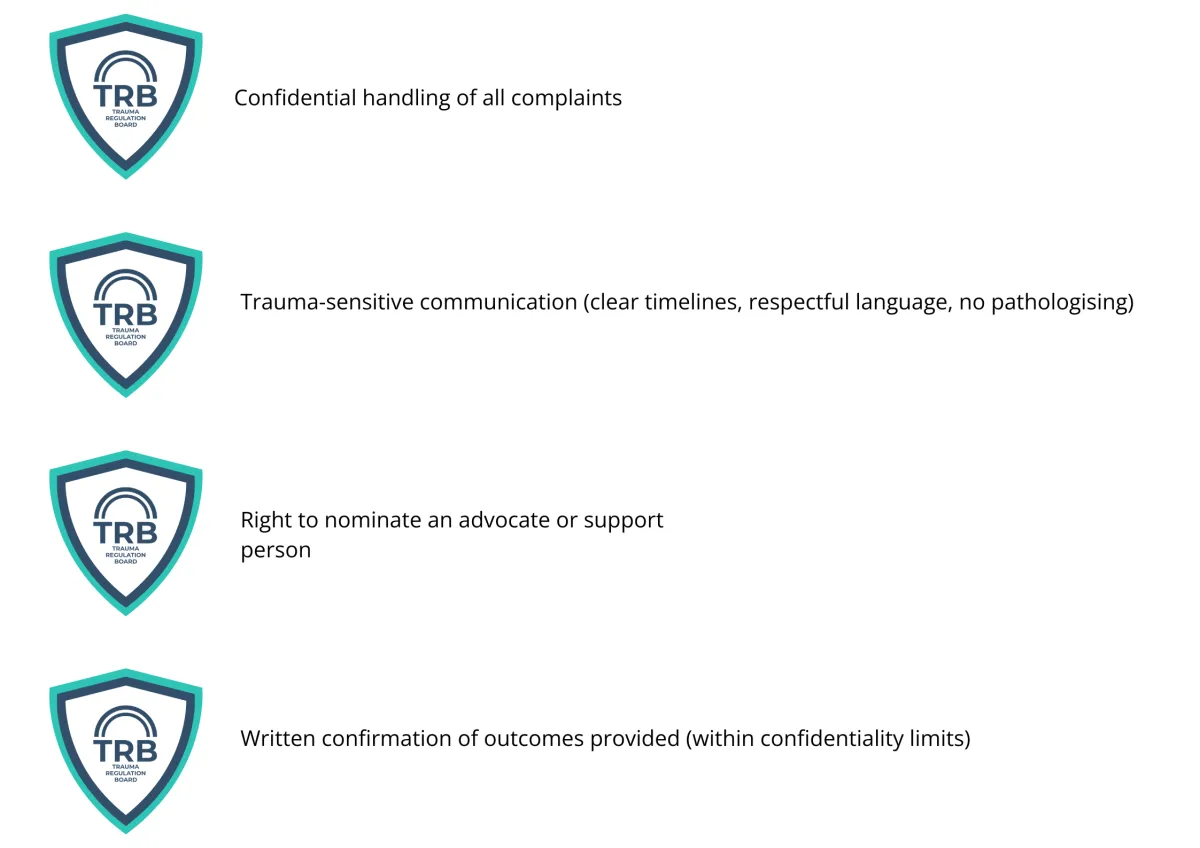
9.) Public Protection Measures
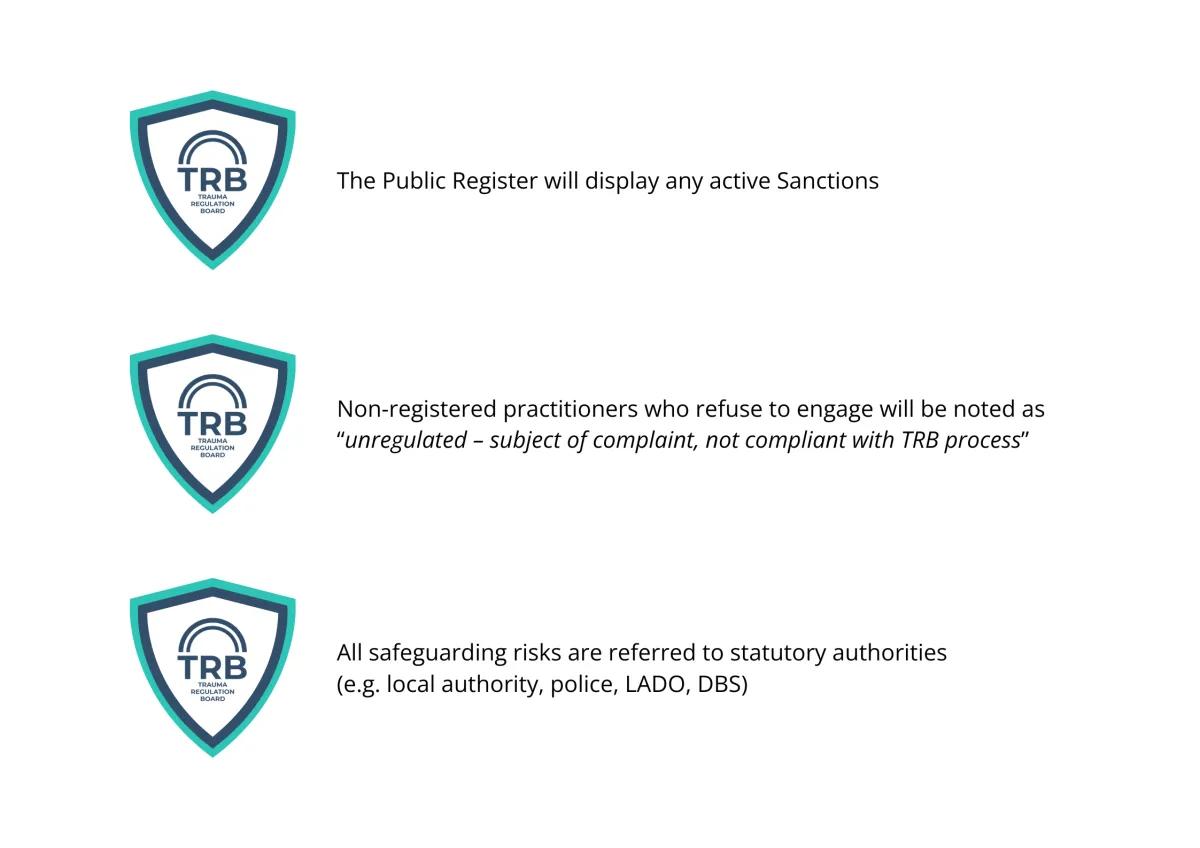
9.) Learning & Improvement
Complaints are logged and reviewed quarterly by the TRB Oversight Committee
Thematic risks are used to improve training, guidance, and policy
An Annual Report will publish anonymised complaint data and response metrics
All registrants subject to complaints will be offered targeted CPD to address concerns
10.) Why this Matters
Many practitioners describe themselves as “trauma-informed” but practise without adequate training, oversight, or regulation. The TRB complaints system ensures:
Unsafe practice is identified and addressed
The public is protected from retraumatisation
Practitioners are given the opportunity to raise their standards through training and registration
Commissioners and service leaders have a transparent, enforceable accountability mechanism
Join the TRB
Become a Trauma-Focused Educator
Join the TRB Mailing List
Receive trauma-informed insights, practitioner updates, and exclusive newsletters directly to your inbox
© 2026 Trauma Regulation Board - All Rights Reserved │ Privacy Policy │Terms & Conditions
The Trauma Regulation Board operates under a non-exclusive licence from The Fairhurst Foundation LLC for the use of all trauma frameworks, models, assessment tools and educational content.
